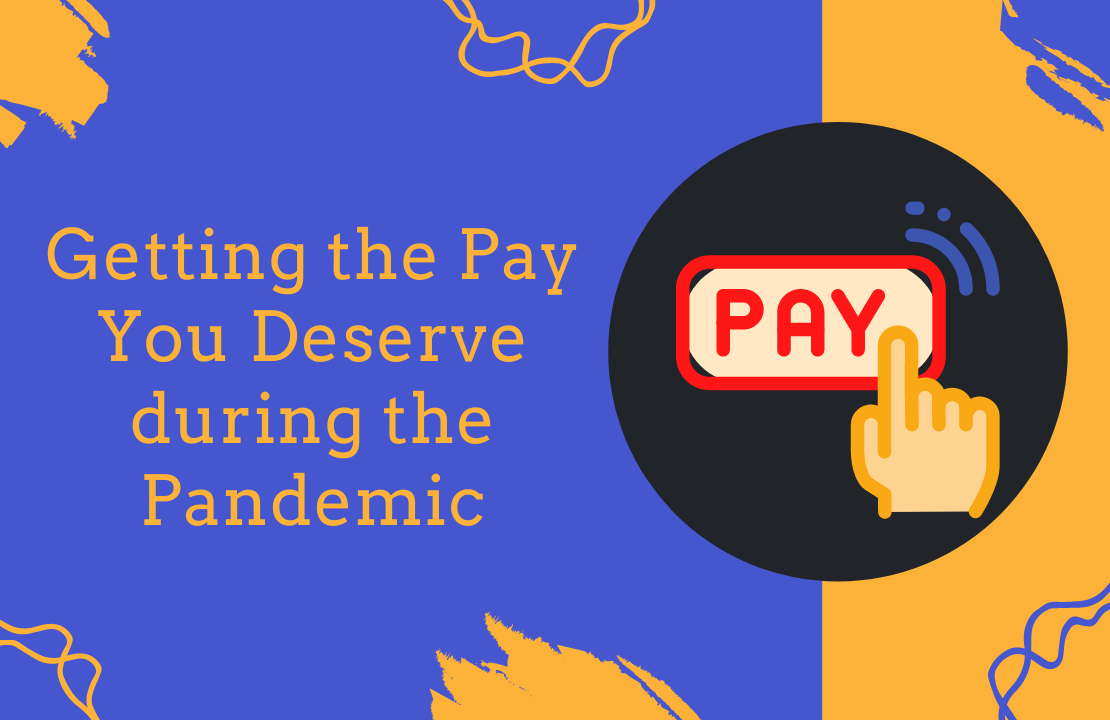Table of Contents
When the pandemic hit in 2020, many professionals lost their jobs. Although the light at the end of the tunnel is slightly visible now, finding a job remains a challenge for some professionals. According to BBC News, about one in 20 people remain jobless, as of the first quarter of 2021. In such a case, salary negotiation seems taboo. You should feel lucky enough to be offered a job in the middle of a pandemic, right?
Here’s the thing. You’re being offered the job because you are a good match for the role, not just because you got lucky. So, you deserve to get paid for whatever you’re worth regardless of the situation we’re in. If you’re wondering how you can do that, keep on reading. We will provide additional tips on how you can get the pay you deserve during the pandemic.
1) Do your research
Most employers typically include a salary range in the job description. But before engaging in a salary negotiation, you need to arm yourself with sufficient data. In this instance, research is your best ally. Glassdoor, Salary.com, and PayScale are some of the tools that you can use as a guide to determine whether the role’s salary range is within the market average or a bit off.
When you’re entering a negotiation, you typically aim to get the best offer possible. It’s logical. After all, you wouldn’t want to sell yourself short, would you? Even if this is the case, you also need to consider the fact that there may be less room for negotiation than in the past. As most of us know, the COVID-19 outbreak has profoundly affected many businesses due to lockdowns and restrictions.
Research your target employer to understand how the pandemic impacted the business. What challenges has the company faced since COVID-19 hit? How has the company been navigating the pandemic’s impact? You may get a hint from the news sites, social media, organization’s website, or people from your network who work in your target company. Understanding the company’s situation can help you better contextualize your pitch and be in a stronger bargaining position during negotiation.
2) Build your case
During these challenging times, it’s particularly important to justify your requests. Use the data you gathered from your research to identify your value, define your salary range, and build a strong case. Perhaps you need higher pay because of personal reasons like paying more bills or providing for your family. Many of us do. While these are valid reasons, you will make a much better case when you focus more on the value you can add to the company.
Have a think about why you are worth what you’re asking for. What are the qualifications you have that can make an immediate impact at the company? For instance, many companies have abruptly transitioned to remote work as a result of the pandemic. So, if you know a technology that could increase productivity while working remotely, the employer will likely see you as someone worth the investment. As a rule of thumb, provide specific examples of how your skills and experience can benefit your target company.
3) Protect your mental health
When you feel unfulfilled with your current job or have been unemployed for a while, that feeling of desperation to secure a job offer can easily creep in. When negotiating from a place of desperation, there is an urgency that comes across in the message. As a result, it puts the other person in power. Once you lose power, you may have fewer chances of achieving a favorable outcome. You could say yes to a job offer that isn’t ideal for you and end up being underpaid.
The hopeless feeling is completely valid and normal, especially during a pandemic. Don’t despair if you’re unable to establish a mutually beneficial salary agreement with your prospective employer. According to the Office for National Statistics (ONS), the second quarter of 2021 estimates show a continuing recovery in the labor market. ONS observed a quarterly increase in the employment rate, while the unemployment and economic inactivity rates decreased. With the number of job openings slowly increasing, you’ll surely find the right one for you.
4) Consider a temporary bridge job
When you finally receive a job offer, you would typically want to get the best salary. But what happens if your prospective employer is unable to offer you a high salary? Should you keep on looking until you find “the one”?
To help you make an informed decision, evaluate your current circumstance. Do you have enough resources to sustain yourself without an income for a few more weeks or months? If so, then walking away from a salary offer that doesn’t suit your requirements may be a good move for you. However, if for instance, your savings are lacking or rapidly depleting in your quest for a new job, then maybe it’s time for you to consider accepting temporary work.
If you need a job and the role is a good fit, go for it even if the salary is not aligned with your expectations. While it may not be your dream job offer, it can serve as a bridge to get to the next step in getting the salary you deserve. Here are some other reasons why you should consider a temporary bridge job.
- It can help you develop the necessary skills you need for your dream job.
- It provides you the financial resources that will enable you to continue your search.
- You can gain valuable experience to put on your resume.
- It will enable you to build your network, maximizing your chances of getting the best salary in the future.
The impact of the pandemic has made it even more challenging for candidates to ask for more during salary negotiations. But remember, you deserve to get what you are worth regardless of the circumstances. The tactics outlined in this article aim to help you maximize your chances of getting the offer you deserve. If you still find negotiations intimidating, we would be happy to help you.











